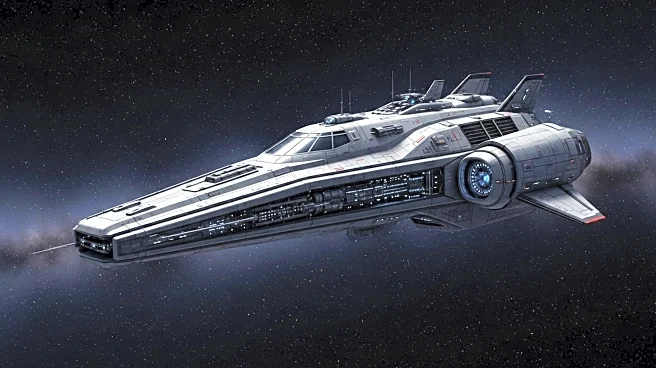What's Happening?
Mason Peck, an aerospace engineering professor at Cornell University, leads a lab focused on developing innovative spacecraft technologies. The lab has launched various spacecraft, including those that use electromagnetism for docking and 'spacecraft on a chip'—small, durable devices designed to survive in space. Their latest project, the Alpha mission, involves a grapefruit-sized spacecraft with a large sail, demonstrating new propulsion methods using solar wind and laser light.
Why It's Important?
These advancements in spacecraft technology could revolutionize space exploration by reducing costs and increasing the efficiency of missions. The development of smaller, more durable spacecraft opens new possibilities for scientific research and commercial applications in space. This work positions Cornell University as a leader in aerospace innovation, potentially attracting further funding and collaboration opportunities.
Beyond the Headlines
The lab's work raises ethical and regulatory questions about the proliferation of small spacecraft in orbit, including potential impacts on space debris and satellite congestion. As these technologies advance, international cooperation and policy development will be crucial to ensure sustainable and safe space exploration.











